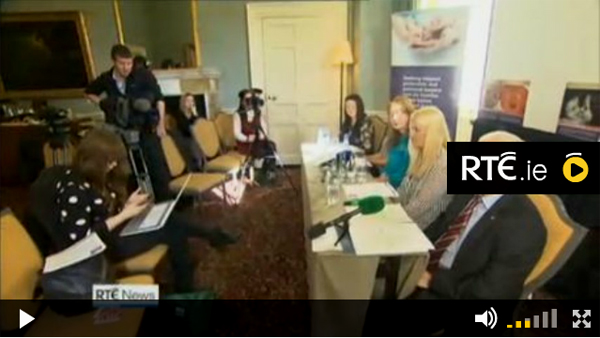Geneva Campaign Launch
"We're launching a global campaign to end disability discrimination caused by the 'incompatible with life' label"
Merrion Hotel, 9 March 2015
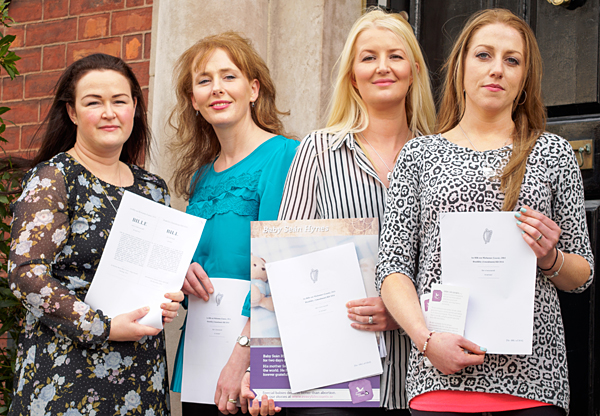
See the Report on RTÉ TV News (above) : 9 March 2015
"Thank you very much for coming today.
On Wednesday we will join with families from around the world at an important conference at the United Nations in Geneva to launch a global initiative which aims to end disability discrimination caused by the ‘incompatible with life’ label.
We are delighted to tell you today that, even ahead of the event, international support is building with 200 medical professionals already supporting the initiative, including some leading experts in this area, and some 25 NGOs adding their endorsement.
We have undertaken this global campaign because the phrase ‘incompatible with life’ is not a medical diagnosis and is leading to lethal discrimination against children diagnosed with severe disabilities, both before and after birth.
Although the phrase has become common currency, it is medically meaningless, it misleads parents, and it prevents best care for children and families both before and after birth. The groups endorsing the campaign - including the International Trisomy Alliance, SOFT, the Lejeune Foundation and Now I Lay Me Down To Sleep – provide support to parents who understand all too well the harm that can be caused by this phrase.
Our conference at the United Nations, on Wednesday March 11th, will hear evidence that the phrase ‘incompatible with life’ is devaluing and dehumanising children diagnosed with a severe disability with negative and sometimes lethal consequences for those children before and after birth. A new medical declaration, the Geneva Declaration on Perinatal Care, will also be launched, which aims to enlist the support of medical professionals in ensuring the phrase is not used in counselling families.
As previously noted, the Declaration has already been signed by some 200 medical professionals, amongst them, Dr John C Carey, the Editor of the American Journal of Medical Genetics. Another key body endorsing the initiative is the International Children’s Palliative Care Network – the global leader in paediatric palliative care who work closely with the UN and WHO in this area. .
The Declaration states that: 'As medical practitioners and researchers, we declare that the term “incompatible with life” is not a medical diagnosis and should not be used when describing unborn children who may have a life-limiting condition' and also calls for better perinatal care for families.
The conference is included in the UN programme for the 28th Session of the Human Rights Council when the council dialogues with the Special Rapporteur on the rights of persons with disabilities. A written statement explaining the initiative is being circulated to every delegate at the UN session.
Medical experts in obstetrics, neonatology, and perinatal hospice will join families at the conference in showing that the term is not a medical diagnosis. They will argue that the phrase should be discontinued, just as offensive and discriminatory terms such as 'retard' and 'cretin' have been in the past. Mattie Mc Grath, the Independent TD from Tipperary will also be attending and will speak about his proposed Private Members Bill supporting the initiative.
All families speaking have either lost their children to conditions such as anencephaly and Trisomy 13, or have children who were described as 'incompatible with life' but are still living.
We've linked up with disability rights groups, support groups and medical experts right around the world because the misinformation needs to stop. We're calling on medical professionals to stop using this term, because it misinforms parents, it pushes families towards abortion, and it denies them a chance to spend time with their children, to make memories and to heal.
‘Incompatible with life' is a medically meaningless term because no doctor could say with certainty that a child, however severe their disability, would not live until birth. Every child is compatible with life, and compatible with love and we need to work together to get the best care for families and to stop language that is leading to lethal disability discrimination.
We've heard mothers like Mandy Dunne, whose baby girl Muireann lived for six weeks after birth with Trisomy 13, say that 'I felt those words took her life from me, there and then. Those words instil a fear inside parents, and that's not what parents or their baby needs'. Other mothers like Barbara Farlow from Canada, who is a researcher in this area, will show that the use of the phrase can lead to a reluctance to carry out beneficial interventions after birth. This is a global problem, leading to discrimination against many thousands of children like our children, and we need the use of this phrase to be discontinued.
We want to challenge the United Nations to recognise the dignity and value of all children with terminal illness and disability.
The UN Convention states that 'States Parties shall take all necessary measures to ensure the full enjoyment by children with disabilities of all human rights and fundamental freedoms on an equal basis with other children'. The Preamble to the UN Convention on the Rights of the Child also states that a child 'needs special safeguards and care, including appropriate legal protection, before as well as after birth'.
Yet studies show that up to 90% of children with disabilities are aborted before birth. In particular, children with life-limiting conditions are subject to discriminatory language and attitudes which deny them their humanity and their human rights. Families who are told that their baby may not live for long after birth need our full support and holistic perinatal care, but this can only be achieved if misleading and offensive language and attitudes are discontinued."
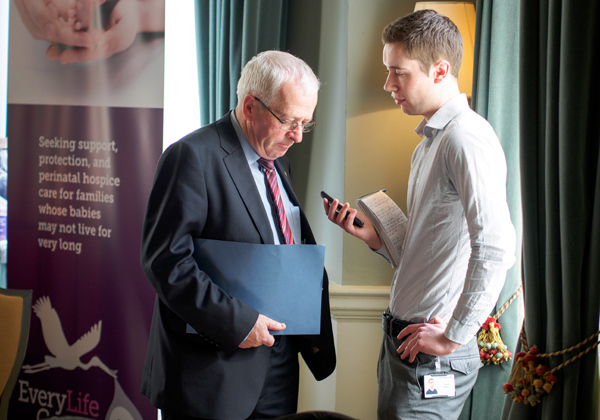
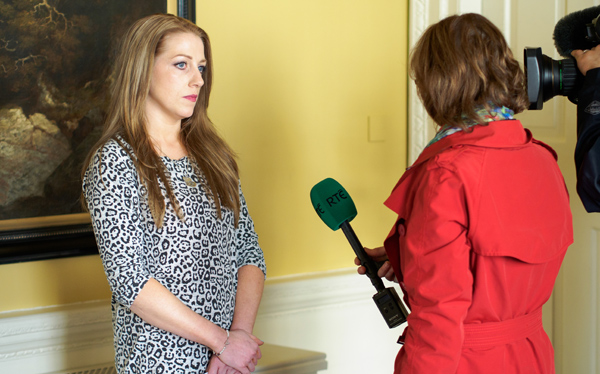
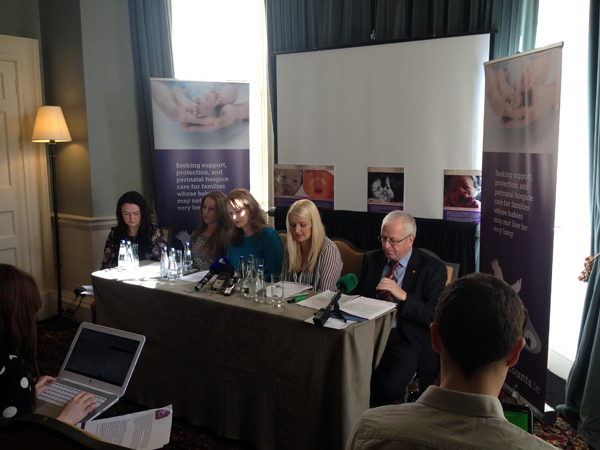
Press Coverage
- Report on TV3 News : 9 March 2015 - Go to 8.45
Spanish Politicans support the initiative


